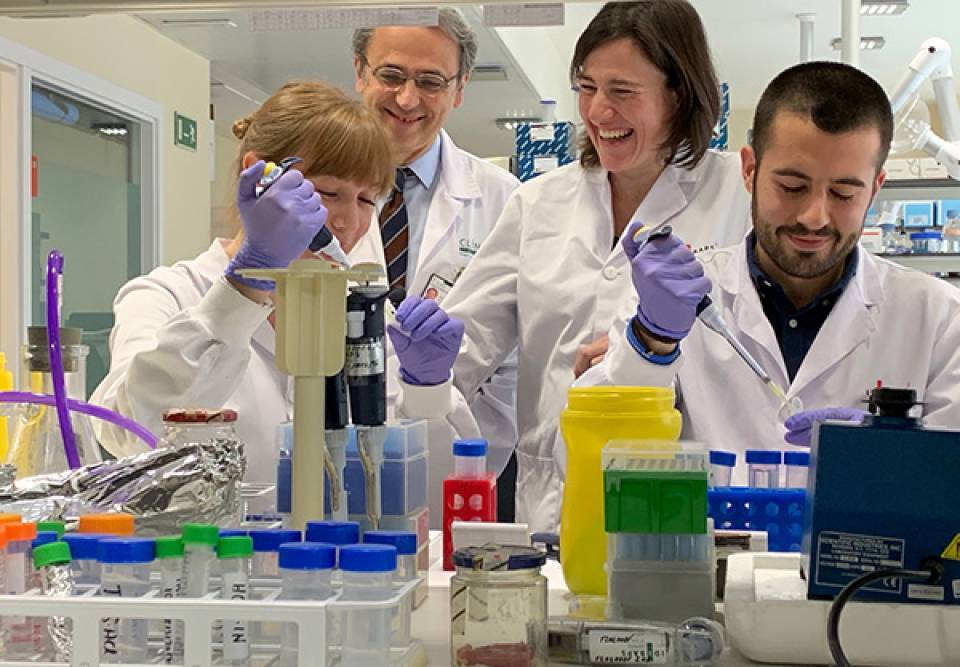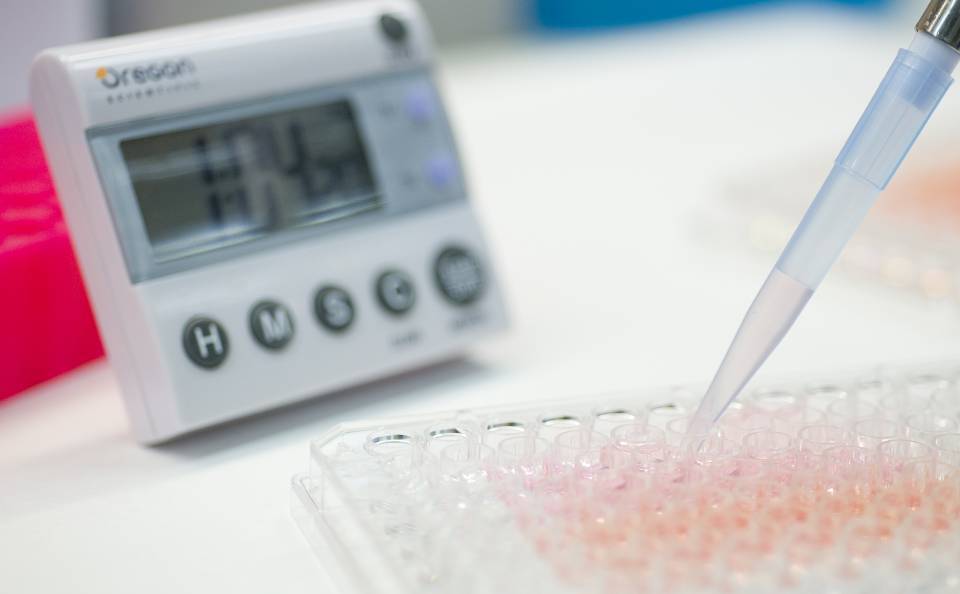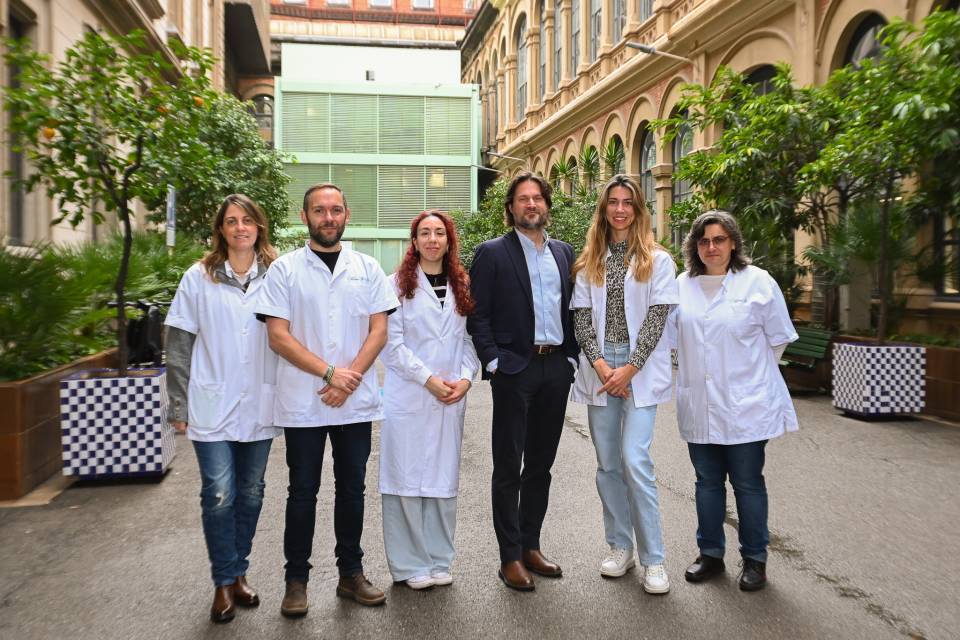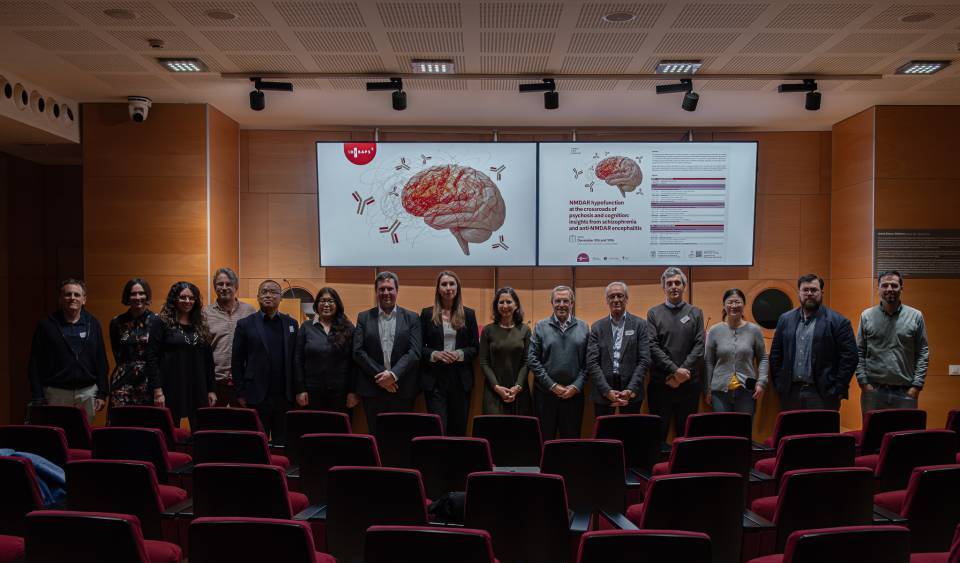Until now it was considered that the inflammation of the liver was the key process for the progress of the disease. The study shows that this inflammatory process is not as important as the process related to the accumulation and activation of platelets. If this process is inhibited, steatohepatitis is prevented from progressing to liver cancer.
The study has been coordinated by Mathias Heikenwälder, researcher at the Cancer Research Center of Heidelberg, and Josep M. Llovet, head of the translational research group in hepatic oncology of IDIBAPS, ICREA professor, professor at the University of Barcelona, and director of the Liver Cancer Program at the Icahn School of Medicine at Mount Sinai (New York), and Roser Pinyol, researcher from the same IDIBAPS group, have participated
This article is part of the European HEP-CAR project, funded by the Horizon 2020 framework program and whose objective is to identify the molecular mechanisms that have a direct impact on the development of hepatocellular carcinoma (HCC).
A growing health problem
Non-alcoholic fatty liver disease (NAFLD) is the most common chronic liver disease in developed countries and is characterized by the accumulation of fat in hepatocytes, the main cells of the liver.
There are different degrees within NAFLD, ranging from simple steatosis, in which the accumulation of fat occurs in an isolated form in the liver, to steatohepatitis, that appears when there is progressive inflammation and fibrosis which may progress to cirrhosis and ultimately to liver cancer. Currently, between 20-25% of European and American citizens have fatty liver and a quarter of them will develop steatohepatitis.
The incidence of nonalcoholic fatty liver has increased significantly in recent years as a result of sedentarism and bad eating habits. The main risk factors for developing the disease are obesity, metabolic syndrome, insulin resistance and type 2 diabetes.
Steatohepatitis can progress to hepatocellular carcinoma, which accounts for 90% of primary liver tumors and is the fourth leading cause of cancer death worldwide. It has an incidence of 850,000 new cases per year and is the cancer with the fastest growth rate in the United States and Europe.
Non-alcoholic fatty liver disease plays an important role in this increased incidence. "In the United States, steatohepatitis accounts for the 15-20% of cases of hepatocellular carcinoma. Finding mechanisms to prevent the progression of the disease is key to reduce this rate", explains Josep M. Llovet.
Preventing platelet aggregation to slow the progression of the disease
The mechanism of appearance of steatohepatitis has been related to the inflammation caused by fat micro-deposits in the liver. These deposits would induce oxidative stress and a decrease in T immune cells, which are essential for the surveillance and elimination of cancer cells. The study published in Nature Medicine, conducted in animal models, shows, however, that platelets also have a key role - unknown until now - in the appearance of steatohepatitis and its progression to liver cancer.
Researchers have observed in animal models that both the number of platelets and their activation and aggregation are significantly increased in steatohepatitis. They have also seen that treatment with platelet antiaggregants, which prevent the accumulation and activation of platelets, does slow the progression of the disease and is effective, therefore, in the prevention of steatohepatitis and liver cancer. On the contrary, the administration of conventional anti-inflammatories neither slows the progression of the disease nor prevents the appearance of liver cancer.
In the article, the authors also show that the livers of patients with non-alcoholic steatohepatitis have significantly more platelets compared to healthy patients. This fact opens the door to a new approach to the disease, from which progression could be avoided with the administration of platelet antiaggregants.
Researchers propose a selective therapeutic target, the platelet receptor GPIbα. "It is a platelet receptor that, if it is blocked, has an antiaggregant effect and there is no inflammatory activation in the liver," explains Roser Pinyol, co-author of the study.
"This study proposes a new mechanism by which steatohepatitis progresses and may end up causing hepatocellular carcinoma. We show that the inflammatory process is related to platelet accumulation and activation," explains Josep M. Llovet. "This paradigm shift allows us to propose treatment with a selective antiaggregant as a strategy to prevent the appearance of liver cancer in patients with steatohepatitis," he concludes.
Study reference:
Mohsen Malehmir, Dominik Pfister, Suchira Gallage, Marta Szydlowska, Donato Inverso3, Elena Kotsiliti, Valentina Leone, Moritz Peiseler, Bas G. J. Surewaard, Dominik Rath, Adnan Ali, Monika Julia Wolf, Hannah Drescher, Marc E. Healy, Daniel Dauch, Daniela Kroy, Oliver Krenkel, Marlene Kohlhepp, Thomas Engleitner, Alexander Olkus, Tjeerd Sijmonsma, Julia Volz, Carsten Deppermann, David Stegner, Patrick Helbling, César Nombela-Arrieta2, Anahita Rafiei, Martina Hinterleitner, Marcel Rall, Florian Baku, Oliver Borst, Caroline L. Wilson, Jack Leslie, Tracy O’Connor5 , Christopher J. Weston, David H. Adams, Lozan Sheriff, Ana Teijeiro, Marco Prinz, Ruzhica Bogeska, Natasha Anstee30,31, Malte N. Bongers, Mike Notohamiprodjo, Tobias Geisler, Dominic J. Withers, Jerry Ware, Derek A. Mann, Hellmut G. Augustin, Alexandros Vegiopoulos, Michael D. Milsom, Adam J. Rose, Patricia F. Lalor, Josep M. Llovet, Roser Pinyol, Frank Tacke, Roland Rad, Matthias Matter, Nabil Djouder, Paul Kubes, Percy A. Knolle, Kristian Unger, Lars Zender1, Bernhard Nieswandt, Meinrad Gawaz, Achim Weber and Mathias Heikenwalder.
Nature Medicine (2019). https://doi.org/10.1038/s41591-019-0379-5




